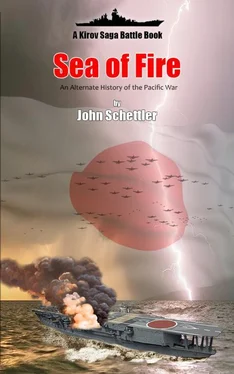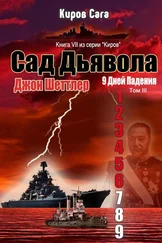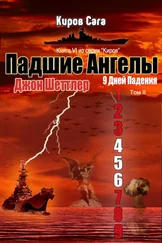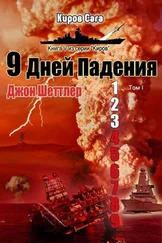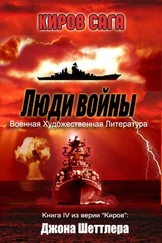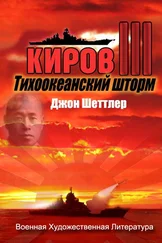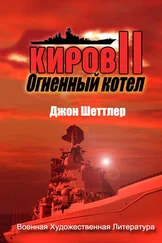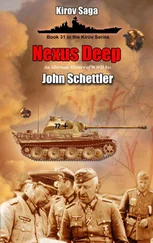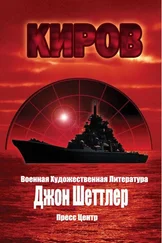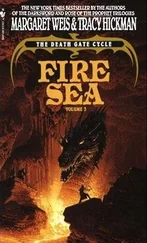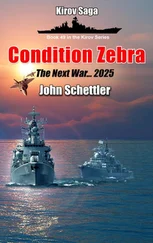“That and a hundred other messages. I’ve been trying to log them all, sir—mostly about operations underway in the South Pacific.”
“You mean the stuff you gave me this morning.”
“Yes sir.”
“Well when were you planning to get around to informing me of this decoded intel message, Ensign?”
“Sorry sir, I wanted to make sure I got it right first.”
Captain Harada rubbed his chin. “Alright… Let’s not jump to conclusions about that yet.” He looked at Chief Oshiro, who then spoke up, focusing the question before them again in a very practical way.
“Here’s the SITREP from my perspective down in Engineering,” he said. “I’ll make it as plain and simple as I can. We topped off the fuel bunkers when we made Darwin three days ago. After that we transited the Timor Sea into the Indian Ocean, twiddled our thumbs at Christmas Island, and then swung up through the Sunda Straits, and right into 1942, crazy as that still sounds. Since then we’ve eased up here off the coast of Borneo and finally found clear air. That little trip was about 2075 nautical miles. Now we’re talking about delivering the General down there in sick bay to Balikpapan. Well I tapped Lieutenant Ikida’s shoulder on that one, and that would put us a little over 3000 nautical miles out of Darwin when we get there, assuming that’s what we do. We’ll be at 70% on the fuel bunkers, so in another couple thousand nautical miles, we’re going to dip below the 50% mark and need to start looking for fuel. If we don’t shake hands with a smile at Balikpapan, then the closest port on the other side is back to Darwin, another1330 nautical miles, and by the time we get there again our bunkers will be at under 55%. So I hope they have what we need, because if they don’t, then everything else out here is run by our great grand dads in the IJN.”
That put a fine point on their situation. Takami was not a nuclear propulsion vessel. The initial two units in the class had exclusively used the high performance GE LM2500 gas turbines, which used a highly refined and somewhat expensive fuel. It was great for quickness and fast acceleration, but produced limited range of 4,500 nautical miles. As a quiet testament to Japan’s thinking about slowly building a more capable blue water navy, the last two ships in the class had been modified to use a Combined Diesel and Gas system, known as CODAG.
Japan Diesel United Ltd. had pioneered the design of what was regarded as the most efficient prime-mover in the world at their Aioi Works plant. Designed for large container ships, these turbo-charged Diesel engines soon came to the attention of the Navy, and a new 6 stroke model was purchased for Takami . At slower cruising speeds, the ship would switch to this engine, which could use regular diesel fuel and achieve much longer ranges. For a high speed burst, they would engage the Gas Turbines. This combination more than doubled the sea range of Takami over the lead ship in the class, giving her a range of nearly 11,000 nautical miles.
“Thank you for that report, Chief,” said the Captain. “So it comes down to wondering where our next meal is coming from.”
“And wondering whether we’ll get any kind of a reception at Darwin if we do head back there,” said Fukada. “If I recall the history, the IJN just bombed the place not too long ago. Oh, I suppose we could ease into port, but we’d have to strike our colors, and even then what in the world will they make of a ship run by an all Japanese crew? How do we politely explain that we’re on their side now… and if we do, how in the world do we ever explain it to anyone back home? From that moment on, we’ll be at war with our grandfathers, our own people. Now then…. Imagine if we end up killing one of them? Imagine if we put a missile on the Chief’s old Ojiichan? What happens to him?”
Silence….
The XO’s comment all underscored yet another point. The flag on their ship was the Japanese naval ensign. The nation they were pledged to defend was their homeland, the land of their grandfathers, who would soon all give birth to their parents. It was their blood, in a very real respect, that was now running in their veins. Who were they going to fight for here? They were no closer to a real answer to that on the intellectual level, but emotionally, there was movement in that room, and you could see it on many of the faces of the men around that table. The thought of taking DDG-180 out to sea to fight against Japan was going to be very uncomfortable.
The Captain could read the atmosphere in the room easily enough, yet he also perceived the consequences of what he was now mulling over, and thought it best that he voice them.
“I’ll be the first to say this isn’t the war we ever thought we’d be fighting. Three days ago, it was the Russians and Chinese we were worried about. From what I gather, Japan is at war with them both at this very moment, but the Grandfathers of our old American friends are not their allies here. That’s a bit awkward for us, to say the least.”
“Yes,” said Fukada. “They whipped us pretty damn hard in 1945, occupied Japan, imposed a constitution on us, and here we are in a ship with the American Aegis combat system running the show, and US built missiles in the decks fore and aft. Now we could throw salt in the wounds and turn all those lovely missiles on our own people, but then again, we could also do just the opposite, and give them back to the Americans when they come for Hiroshima and Nagasaki… That’s where my great grandparents live, and that’s where they died too. Their only child, my grandfather, was fortunately at Fukuyama visiting relatives when the bomb fell. Otherwise I wouldn’t be here now…”
Thewords of Executive Officer Fukada cut to the bone. In spite of the fact that many of the officers and crew of Takami might have believed Japan’s war was misguided folly, a disastrous gamble that brought nothing but misery to their homeland, and most of Southeast Asia, blood ties run very thick in Japan. Then Lieutenant Ryuko Otani spoke up, voicing a concern that was still at the base of all this discussion.
“Alright,” she said. “These are our people here, our ancestors, impossible as that still seems to me. But let’s not forget what they did. This war was unnecessary. We came south to seize oil and other resources, all in the interest of the new Japanese Empire. A minute ago we were talking about delivering the General to Balikpapan. Well, when the Dutch set fire to destroy some of the oil facilities there, our grandfathers responded by killing every last Caucasian in the city—all of them. The good General there was leading the invasion of Java, where the U.N. reported after the war that three million locals died under the Japanese occupation by 1945. And let’s not forget the invasion of China, the atrocities committed there, and throughout this entire theater. They were simply wrong—no, that doesn’t even begin to say it. They were criminal, and the men who perpetrated or condoned them filled our enemies’ hearts with everything they delivered to Hiroshima and Nagasaki.”
“There were atrocities on both sides,” said Fukada. “Our soldiers called the American 41st Division ‘the Butchers,’ because they never took prisoners—though they made sure they got every gold filling out of the mouths of the men they killed.”
“Oh?” said Otani, “and shall we talk about Unit 731 and the bio-warfare experiments now? They froze prisoners to death just to assess their tolerance to cold. Then they boiled others to see how long they could survive in the heat. And then there was Manila, where our troops raped and butchered 100,000 Pilipino civilians before that city fell in 1944. It goes on and on. How can we support these men, these Generals and Admirals who allowed this to happen? How can we support a man like Tojo? Let’s face it. Some of our ancestors were real monsters.”
Читать дальше
